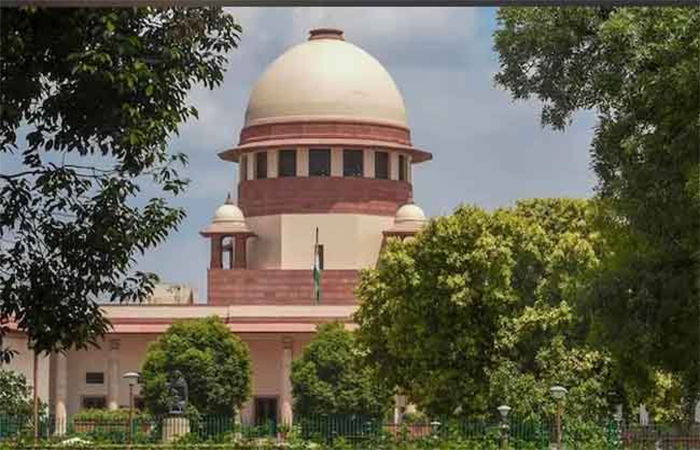
New Delhi: The opposition is alleging arbitrary arrests under PMLA by the Enforcement Directorate. At such a time, the Supreme Court on Thursday put a stay on the arrest of Manma under PMLA by ED. The Supreme Court on Thursday said the ED cannot arrest any accused under Section 19 of the PMLA after the special court considers the complaint. The Supreme Court had reserved its decision in this matter on April 30.
The Supreme Court said that if the ED wants to arrest such criminals then it will have to apply to the concerned court for the arrest. If the court is satisfied with the ED, it can allow detention if custodial interrogation is required. Judge Abhay S. Oak and Ujjwal Bhuyan today delivered its verdict on the power of arrest warrant under PMLA.
After taking cognizance of an offense punishable under Section 4 of PMLA on the basis of a complaint under Section 44, the ED and its officers cannot exercise powers under Section 19 to arrest a person named as an accused in the complaint Are. Clarifying the provisions of PMLA, the Supreme Court said that in a case where the ED has filed a charge sheet without arresting an accused and the court takes note of it and sends summons, such person can be granted bail under PMLA. There is no need to satisfy dual conditions. , If the accused appears before the Special Court by summons (by the court), he cannot be deemed to have been detained.
If ED officials want to arrest the accused who appear after the summons for further investigation of this crime, they will have to file an application in the special court and seek custody of the accused. Not only this, after hearing the accused in the special court, after giving reasons, the court has to pass an order on the application. Even if the accused has never been arrested under Section 19, the court can still make the order. However, the court will permit detention only with reasons that are satisfactory and require detention and interrogation.
According to Section 45 of the PMLA, an accused in a money laundering case can be granted bail only if two conditions are fulfilled, namely, prima facie satisfaction that the accused has not committed the offence. Furthermore, he is unlikely to commit any crime while free on bail.
The opposition has accused the central government of misusing the Prevention of Money Laundering Act. This law was made in the year 2002 during the government of Atal Bihari Vajpayee, but it was implemented in the government of Manmohan Singh. Till now this law has been amended several times. The only objective of this law was to curb black money. Former Jharkhand Chief Minister Madhu Koda was arrested for the first time under the PMLA Act. After 2010, many big scams took place including 2G scam, coal scam and the crackdown on politicians started under the PMLA Act. In the year 2012, the then Finance Minister P. Chidambaram amended the law and made it more stringent.
 look news india
look news india